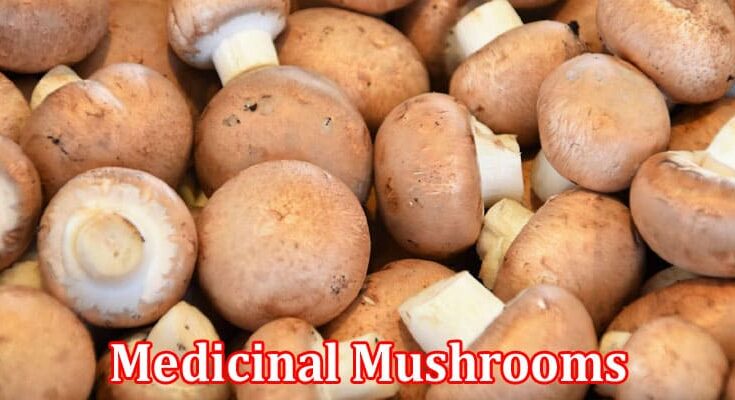Medicinal mushrooms are nature’s way of protecting us against free radicals that cause diseases like cancer, Alzheimer’s and heart problems. They contain antioxidants – natural chemicals which break down free radicals to help your body remain healthy.
Studies demonstrate how medicinal mushrooms can bolster your immune system and eliminate bacteria that opportunistically attack it, while simultaneously offering anti-ageing, anti-tumor and hypoglycemic benefits.
Cordyceps sinensis
Ophiocordyceps sinensis, commonly referred to as the “caterpillar fungus,” is an entomopathogenic fungus found on certain insect larvae and used in Traditional Chinese Medicine to treat fatigue, illness, kidney disease and low sex drive.
Supplements containing Ophiocordyceps sinensis have also become popular for their purported health benefits.
Studies have demonstrated how cordyceps can be used to both increase immunity and fight cancer. Studies have demonstrated its direct cytotoxic effects against Ehrlich ascites carcinoma, meth-A fibrosarcoma and B16 melanoma tumors in mice; it even reversed Taxol’s suppressive effect on leukopenia in these same animals!
Cordyceps is also thought to provide protection from oxidative stress – possibly a contributing factor in cancer development. You can click the link: https://www.sciencedirect.com/topics/medicine-and-dentistry/oxidative-stress to learn more about oxidative stress.
Scientists have attempted to cultivate wild versions of cordyceps fungus, as it’s rare and costly. Unfortunately, many attempts have failed.
One approach involves growing it on grains which makes cultivation more cost-effective; another method uses liquid culture with mediums like yeast to mass produce pure mycelium cells for cultivation; these experiments have produced promising results yet have yet to be tested on humans.
Scientists are also working towards cultivating cordyceps anamorphs or non-mushroom forms of cordyceps fungus.
Psilocybe ostreatus
Psilocybe ostreatus mushrooms are popular medicinal mushrooms used for their anti-inflammatory and antioxidant properties, as well as improving cognitive function and decreasing beta-amyloid plaque in Alzheimer’s patients. You can visit this helpful site for more information.
Their pharmacological properties remain poorly understood; more research must be conducted in this area before conclusive conclusions can be reached; however, its ethyl acetate fraction has proven an effective chemotherapeutic agent against leukemia cells.
Medicinal mushrooms are large macroscopic fungi, typically higher basidiomycetes, used to prevent or alleviate diseases.
Their bioactive compounds play a significant role in their therapeutic and health-promoting properties – these include antioxidants that can inactivate metal ions while acting as oxygen scavengers; polysaccharides which support immune response as well as prevent cancer cell growth are among them.
Mushrooms are an abundant source of proteins, vitamins, minerals, fiber and cholesterol-free carbohydrates that are low in calories and fat content. Mushrooms also boast numerous essential nutrients such as riboflavin, potassium selenium and niacin which make them an invaluable functional food that can be eaten either raw or cooked for optimal nutrition.
Numerous species of medicinal mushrooms have long been used as natural treatments, including cancer. These mushrooms can be found growing wild or in cultivation; some fungi may be more potent than others and cause side effects.
Maitake (Grifola frondosa)
Maitake (Grifola frondosa) mushroom has long been used as an effective medicinal substance, and is widely considered an essential addition to any diet.
Notably, its high levels of beta glucan can reduce cholesterol, improve artery health and even help lower blood pressure – not bad considering this nutritious addition has low calories, sodium and cholesterol content while providing ample amounts of protein, fiber and vitamins such as B6 and niacin! In addition, Maitake mushrooms offer significant amounts of immune-enhancing beta glucan content.
Medicinal mushrooms have become increasingly popular, particularly among those looking to strengthen immunity or treat disease.
Although there are various kinds of medicinal fungi available, maitake stands out as being particularly potent; studies have demonstrated it increases antibody production after influenza vaccination as well as relieving common cold symptoms and acting as a natural anti-inflammatory to help treat arthritis.
These benefits of maitake mushrooms can be attributed to its D-fraction, MD-fraction and SX-fraction polysaccharides; these compounds have an established antitumor effect as well as helping diabetics reduce glucose levels without adversely impacting glycemic control.
A recent study indicated maitake extract’s efficacy at decreasing blood sugar without altering glycemic control; however due to its hypoglycemic properties people with diabetes should consult their healthcare provider prior to consuming maitake supplements or maitake supplements from supplements manufacturers.
Anctin-A (Antrodia cinnamomea)
Medicinal mushrooms have long been recognized for their healing powers. Packed with vitamins, minerals, and special polysaccharides that boost immunity and well-being, medicinal mushrooms may help fight fatigue while improving cognitive function and decreasing inflammation – not to mention some species being especially effective at combating cancer.
Cordyceps, Lion’s Mane and Shiitake mushrooms are three examples of medicinal mushrooms used for treating conditions, including bronchitis and lung disorders, diabetes prevention and cardiovascular wellbeing, as well as inhibiting tumor growth and improving memory. You can learn more about the 10 Best Medicinal Mushrooms to Have – Edible Alchemy by clicking the link. These can have numerous health benefits.
Shiitake mushrooms are a beloved staple food throughout Asia, and have proven their potency against microorganisms and immune-boosters. As well as providing vitamin D and other essential nutrients, their unique fungus lentinan has also been proven to inhibit human colon cancer cell growth.
Chaga mushroom, also known as Tremella fuciformis, contains powerful antioxidants. This jelly-like fungus grows on hardwood tree bark.
Contrary to popular belief, however, chaga isn’t actually a wood decomposer as once believed but rather parasitic upon Birch, Oak and Beech trees and belongs to the Ascomycota subphylum; studies have proven its ability to reduce fatigue while stimulating immune systems in humans.
Mushrooms are a great, organic way to promote overall health and well-being. They can be used in conjunction with traditional medicine for best results. Some varieties can even be grown at home with minimal supplies.

Caroline is a dedicated writer with a passion for keeping readers informed. Specializing in providing the latest news updates and unbiased reviews, she strives to deliver accurate and insightful content. With a keen eye for detail and a commitment to journalistic integrity, Caroline ensures that her readers are always well-informed. Stay tuned for her latest articles to stay up-to-date on current events and trends.




